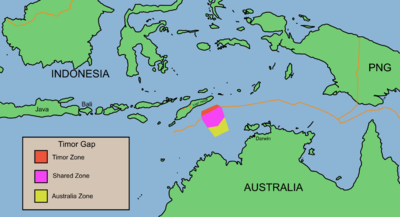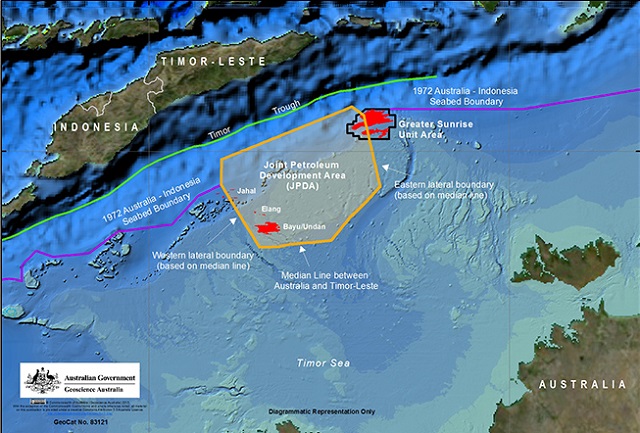Timor-Leste and Australia to Negotiate Border
Timor-Leste (East Timor) and Australia have issued a joint statement ending an treaty that relates to a temporary maritime border in the Timor Sea and access to oil and gas deposits worth around AU$40 billion ($30 billion.)

Timor-Leste had claimed the treaty was invalid and argued that the border should sit halfway between it and Australia. Most of the Greater Sunrise oil and gas field would then be within Timor-Leste territory.
A treaty signed in 2006, instead ruled that revenue from Greater Sunrise would be split evenly between the two countries.
Diplomatic relations have been strained by accusations that Australia was spying on Timorese officials during the negotiations and that Australia took advantage of political instability at the time.
Timor-Leste, gained independence from Indonesia in 2002, but no permanent maritime boundary was established between Australia and the new nation.
On Monday, a joint statement from both countries said the Treaty on Certain Maritime Arrangements in the Timor Sea would no longer apply after a three-month transition period.
"The Government of Australia has taken note of this wish and recognizes that Timor-Leste has the right to initiate the termination of the treaty," the statement said.
A spokeswoman for Australian company Woodside Petroleum, which has an interest in Greater Sunrise welcomed the development in the absence of a permanent resolution, reports The Australian. “We look forward to an agreement that allows for the earliest commercialization of the Greater Sunrise fields, which promise great benefits for all parties.”
Greater Sunrise was discovered in 1974. It is located 150 kilometers south-east of Timor-Leste and 450 kilometers north-west of Darwin, Australia, and it is estimated that the fields contain 5.1 trillion cubic feet of LNG and 226 million barrels of condensate.

that matters most
Get the latest maritime news delivered to your inbox daily.
Woodside Petroleum is operator in the project and has a 33.44 percent share. Development partners include Royal Dutch Shell (26.56 percent), ConocoPhillips (three percent) and Osaka Gas (10 percent). In 2010, Woodside announced its preference for using a floating LNG (FLNG) processing plant.

